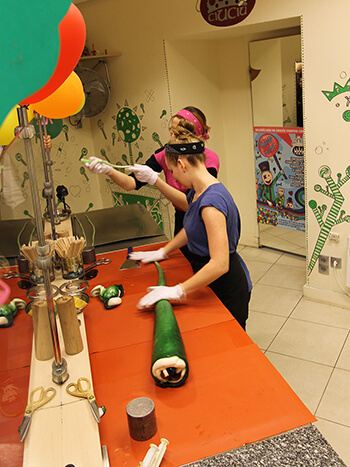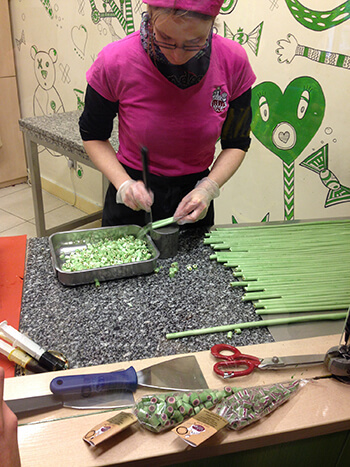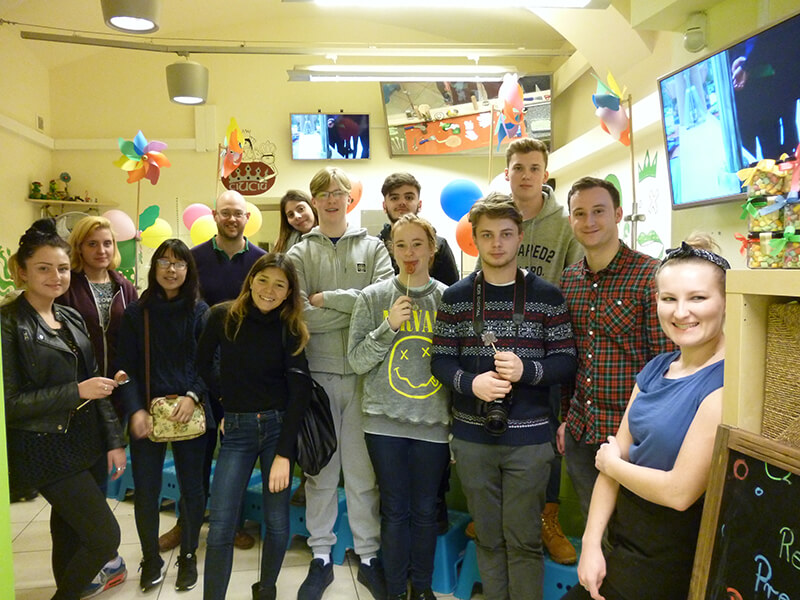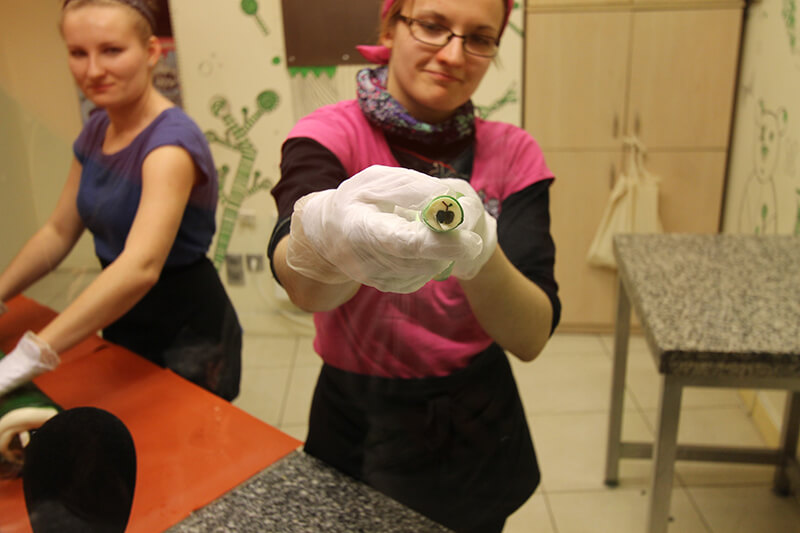DLD Business Studies trip to Poland – Day 2
16th March 16
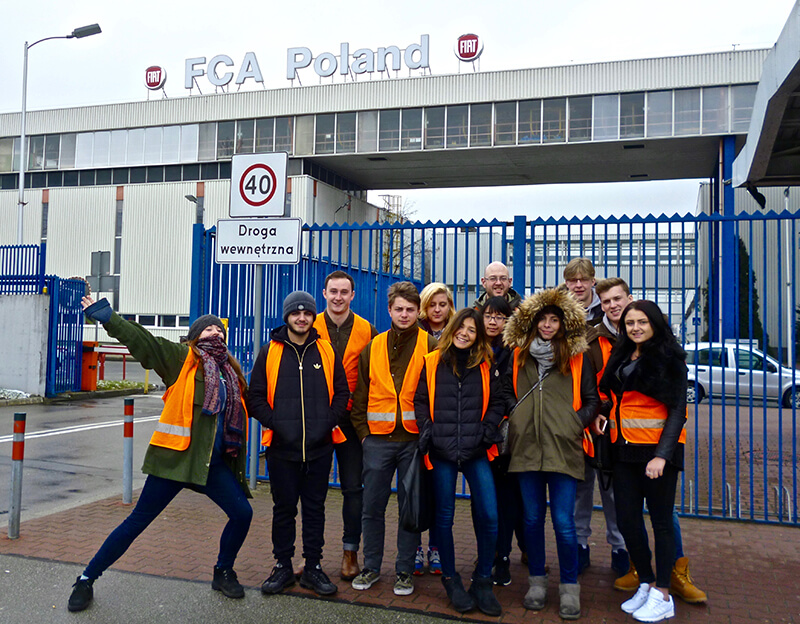
Today our Business Studies students had a chance to examine a contrast in production methods used by the large manufacturing plant of FIAT and the world’s smallest handmade candy store. The day provided some fantastic opportunities for us to see real-life applications of some of the Operations Management concepts we have studied.
In FIAT, there are 3 main elements to the production process; welding, painting and assembly. After a short safety demonstration and donning a glamourous orange high visibility vest, the group started their 2 hour tour of the FIAT auto plant.
The welding department is very capital intensive with the introduction of new technology in the form of robotics and CAM. This allows FIAT to manufacture up to 2600 cars per day. At present, the factory is also producing the Ford Ka. In 2009, they produced 660,000 cars. Today, given the changing economy, the factory now produces around half of this but still exports to 60 different countries including Japan.
The scale of the production is immense and the productive efficiency is highlighted by the capabilities of just one part of the welding process – where 16 robots weld 100 unique points in just 18 seconds. In total, there are 910 robots in the welding department. On questioning our guide Piotr, we learned that defects are only 3.5% at the end of the welding process after using robots. “Robots are better than humans” he tells us… (the takeover has begun!) Another benefit of this process is that any faults can be corrected before the cars move to the paintshop.
After the cars are transferred from the welding section using a motorised lift and conveyor chain, we see that the painting process is every bit as automated as welding. We are told that this process can take up to 9 hours where a batch production system is used for applying paint jobs in order to reduce costs; for example, an order of 100 red cars can be painted on the same production line.
Finally, in the assembly plant, we notice a much more labour intensive manufacturing process where employees work in teams on set tasks. At this stage we notice just how many cars the factory produces every single day. The fact that the factory is currently operating at just 50% capacity shows how much busier this plant could be. After a quick lunch in the FIAT cafeteria, we returned to the coach to journey towards the candy store.
The candy store couldn’t be more different from what we experienced at FIAT. There is barely enough room for our party of 14 to fit and some members of the group are very much distracted by the culinary delights on show. After a brief background of the start-up story of the business, we are invited to watch a demonstration of how the candies are manufactured starting with a caramel mix. Thirty minutes later, after cooling, colouring, stretching and rolling, the employees have made 6kg worth of apple flavoured candies which will be sold in branded glass jars in the store.
Nothing is wasted, as the leftover sugar mix is moulded into lollipops of different shapes and sizes. Some students become over excited at the process and behaved like the literal ‘kid in a candy store’ (Darcy)! After buying our body weight’s worth in handmade sweets, we enjoy some free time in the Old Town before returning to the hotel to get ready for dinner.
Jasmine and Darcy
Thank you to Nicolo for his excellent photography throughout the day!
